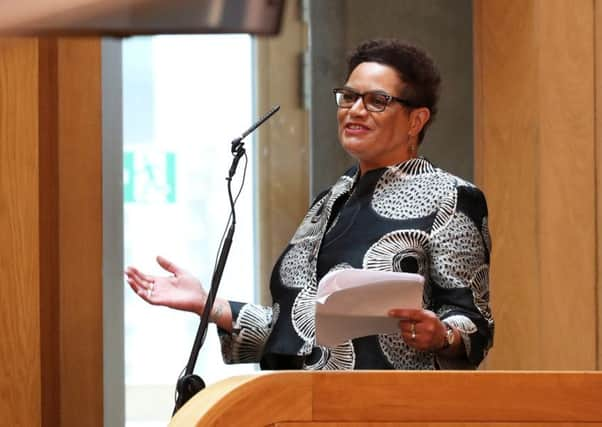Scotland’s must heed its Makar’s words on racism – leader comment


The vast majority of Scots like to think of this country as a place of tolerance and mutual respect, a place where any form of prejudice will quickly be stamped out if it dares to step out into any public sphere.
Asked about the biggest source of bigotry in Scotland, many people would point to sectarianism, often rightly described as “Scotland’s shame”.
Advertisement
Hide AdAdvertisement
Hide AdHowever, of the 6,738 hate crimes reported to police in 2017/18, two-thirds were racially motivated. Like most parts of the world, we have more reasons to be ashamed of ourselves than just one. How many of us can say we have never heard a racist word spoken?
So when Jackie Kay, Scotland’s Makar, says Scotland is decades behind cities in England when it comes to tackling racism and facing up to this country’s participation in the slave trade, we should listen.
Kay, born to a Nigerian father and a Scottish mother in Edinburgh, said in Scotland “it seems to be acceptable to keep on asking people where they are from in the way that you just don’t do with a black Liverpudlian, a black Brummie or a black Londoner. You can’t accept that now, in 2019... It’s not just about people being there and a diverse population, it’s about how we actually change our image of ourselves when we think of what it means to be Scottish.”
In a world where the far-right is on the march – quite literally in places like Charlottesville, Virginia – and ‘identitarianism’, which is just racism and fascism in an ‘alt-right’ disguise, Scotland has bucked the trend. Nicola Sturgeon’s SNP and every other mainstream political party have stood foursquare in opposition to the kind of hate-filled populist nationalism that has attracted considerable support in places like Hungary.
But that doesn’t mean we can be in any way complacent. It’s not accurate to call Scotland a “racist country”, but it’s equally untrue to say that we do not have a problem with racism, equally wrong to think we can simply ignore the evils of the slave trade – which still echo in our society today – in discussions about our history.
Kay’s point is quite a subtle, philosophical one. As we go about our everyday lives, it’s not all that often that we contemplate “our image of ourselves”.
But it is important to do so, because it is something that informs our day-to-day interactions with other people.